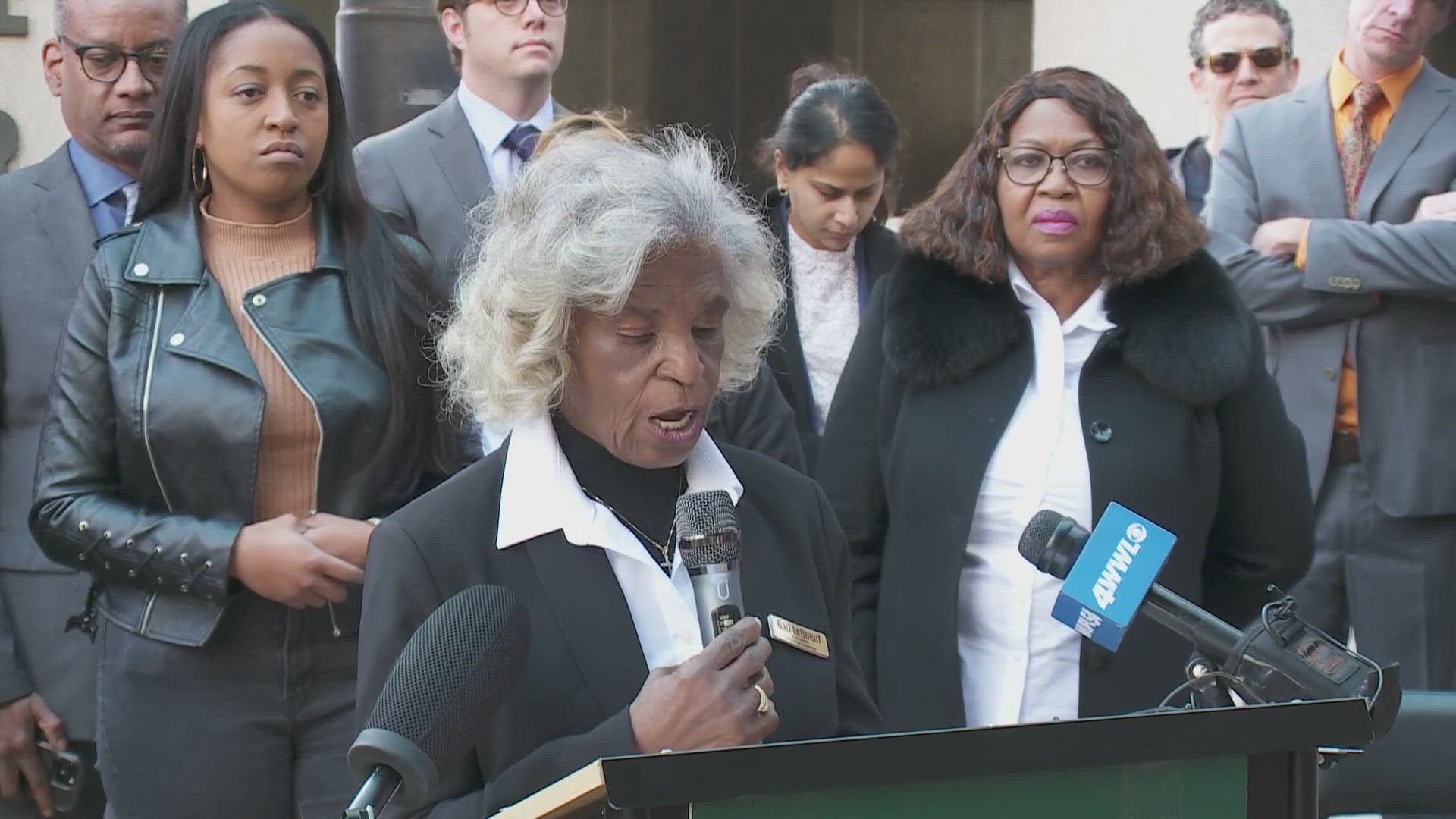ST. JAMES PARISH, La. — For years, residents in St. James Parish have said the chemical plants are killing people in predominantly Black communities and they want to stop those plants from setting up in their backyards. Now, that fight ramps up to a new level after residents took their demands to federal court.
Members of Inclusive Louisiana, Mount Triumph Baptist Church and Rise St. James filed suit, demanding a moratorium on petrochemical plants citing civil rights, religious liberty and environmental justice violations.
The suit was announced during a press conference in front of the US District Court, Eastern District of Louisiana.
“Over and over the St. James Parish council has ignored us,” says Shamyra Lavigne, Executive Assistant of Rise St. James. “They denied our cries for equal rights, for human and basic rights but we stand here today to say we will not be ignored.”
We first covered this fight for environmental justice in our series “Victims of Progress.” In 2019, Rise St James Founder Sharon Lavigne asked for a moratorium on new land use applications for all new petrochemical facilities and infrastructure including pipelines. Environmental activists say that conversation fell on deaf ears and if the parish council won’t respond to their request in monthly council meetings, they’ll have to respond in federal court.
“We want them to hold the industry accountable for the emissions,” says Barbara Washington, a co-founder of Inclusive Louisiana. “We don’t want anymore industry to come in. The area is already overburden with excessive pollution that’s killing us.”
St James Parish runs along the corridor that has gained the moniker “Cancer Alley.” It’s riddled with industrial sites, with most located in the majority-Black, 4th and 5th districts.
The Environmental Protection Agency labels 11 of the facilities “Toxic Release Inventory Sites.” The TRI tracks the management of certain toxic chemicals that may pose a threat to human health and the environment. The suit alleges the parish violated the 13th and 14th amendments.
In its preliminary statement, the plaintiffs state:
“3. Despite the promise of full liberation embodied in the Thirteenth Amendment, of equality and due process guaranteed by the Fourteenth Amendment, and of political enfranchisement set in the Fifteenth Amendment, the segregated and racialized land use system of St. James Parish is directly traceable to land use methods necessary to the system of chattel slavery and the subsequent periods of violence, dispossession, and residential segregation white people carried out during the post-Reconstruction periods of neo-slavery and Jim Crow.”
The suit also states Black residents are largely concentrated in the 5th district saying In 2020, the district was 88.6% Black. The 4th district was 52% Black. Many of the residents who live in St James say they are direct descendants of the former enslaved who once worked the plantations in the parish.
“We deserve to live in a Saint James parish free from pollution.”
“I’ve had four immediate family members to pass in three months,” says Myrtle Felton. “One was my husband, he died of respiratory illness, my sister-in-law, my brother-in-law and my sister’s husband.”
Meanwhile, Gail is fighting two battles, one against the petrochemical industry, and the other against Lung Cancer after being diagnosed this past Christmas.
She made the announcement during the same press conference announcing the lawsuit against the parish.
“I’m in chemo and though I cannot say with a certainty that any carcinogen has caused my cancer, no one can say with a certainty that any carcinogen did not cause it. We need monitoring.”
While calls for a moratorium on the petrochemical industry did not lead to action, the St James Parish Council did approve a temporary commercial solar farm moratorium as a study on the economic and environmental impacts is conducted.
That moratorium is set to end later this month.

